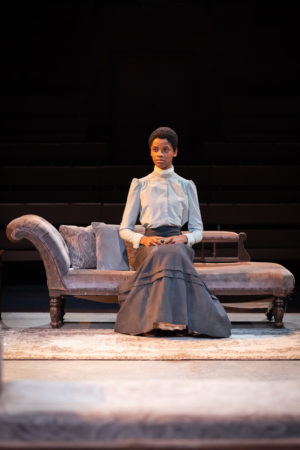You have no items in your cart. Want to get some nice things?
Go shopping In 1895, in current day Zimbabwe, there was a doomed uprising by the local population against the British occupiers who were grabbing land and forcing the natives to work in mines to pay taxes. The British had military superiority and would go on pillaging and oppressing the Zimbabweans for years to come. What does any of this have to do with Christianity? This is where the word colonialism comes in.
In 1895, in current day Zimbabwe, there was a doomed uprising by the local population against the British occupiers who were grabbing land and forcing the natives to work in mines to pay taxes. The British had military superiority and would go on pillaging and oppressing the Zimbabweans for years to come. What does any of this have to do with Christianity? This is where the word colonialism comes in.
‘The Convert’ is written mainly in English, using a European dramatic structure and logic – The writer talks about George Bernard Shaw’s influence on her – It even begins like a Victorian play, an empty drawing room, a maid complete with bonnet and apron dusting a desk, but as more characters appear, the scene goes from cliché to farcical and we realize that nobody on stage knows what this life they’re supposed to be living is about. All the characters are African, they haven’t moved an inch from the place they and their ancestors call home but their country is no longer their own.
Danai Gurira was born in Iowa but moved to Zimbabwe with her parents when she was five. An actress and playwright, she wrote and starred with Nikkole Salter in ‘In the Continuum’ a prize winning play about two black women, at two ends of the world who are diagnosed with HIV and whose fate turn out to be strikingly similar. As an actress Gurira is best known for her role as Michonne on the series ‘Walking Dead’ and more recently as the general Okoye in the Marvel blockbusters ‘Black Panther’ and the ‘Avengers: Infinity War’. She is brave to immerse a Western audience into an uncompromising African perspective in this historical drama. She owns it though as someone who grew up in Zimbabwe would. This is why ‘The Convert’ flows so naturally. It is a story that’s been in the community, in the country for over a hundred years and its truth can be seen in the local Christian churches around Harare and beyond.
Chilford (Paapa Essiedu) decided long ago to leave his “savage” family and traditions behind and become a Catholic priest. As a native black man he of course is not fully ordained but he has authority from the British and so when his failed convert and housekeeper Mai Tamba (Pamela Nomvete) begs him to help her orphaned niece escape an arranged marriage, he agrees on condition that she becomes a Christian.
Enter Letitia Wright as the niece Jekesai. Wright has a nakedness to her that draws you in, from the moment we see her in traditional dress speaking “vernacular” to her transformation into a Christian renamed Ester, beautiful again in Victorian dress. Wright brings a sincerity to Jekesai that makes us feel her conflicting passion for a still European Christ and her family and culture. Other characters try to find their place in this new society. Uncle (Jude Akuwudike) and Jekesai’s beloved cousin Tamba (Rudolphe Mdlongwa) choose to reject the whites together with their Jesus and keep their integrity. Chilford, his best friend Chancellor (Ivanno Jeremiah) and his fiancé Prudence, (Luyanda Unati Lewis-Nyawo) try the path of integration and self-denial, even self-rejection. Ola Ince’s direction is brisk even when the dialogue is lengthy, there is a light touch, and her timing is good. The play never loses steam during the nearly three hours and there are no dead corners on the Young Vic’s arena stage. There is a poignant scene in which Prudence, defeated in spite of all her efforts, shouts in despair (and in the Queen’s English) that there is no place for the ‘educated African woman’ in 1895 and the line feels anachronistic but perhaps that is because it’s still said today. The set by Naomi Dawson with its sofa, wooden desk, crucifix and bench and cold cement floor is the only European presence in the play. A poor Henry Higgins’ drawing room. It is fitting for this reversal of Pygmalion. After a tragic turn, Ester re-becomes Jekesai, this time not by an accident of fate but by an act of self-determination. A Christian Jekesai. The play ends with the stage transformed into a mural of black apostles. Christianity free of colonialism.
The Convert continues till 26th January,2019. Tickets start from £10
About Isabelle Dupuy
Isabelle Dupuy is a writer based in London. She is currently working on a novel "Living the Dream"




